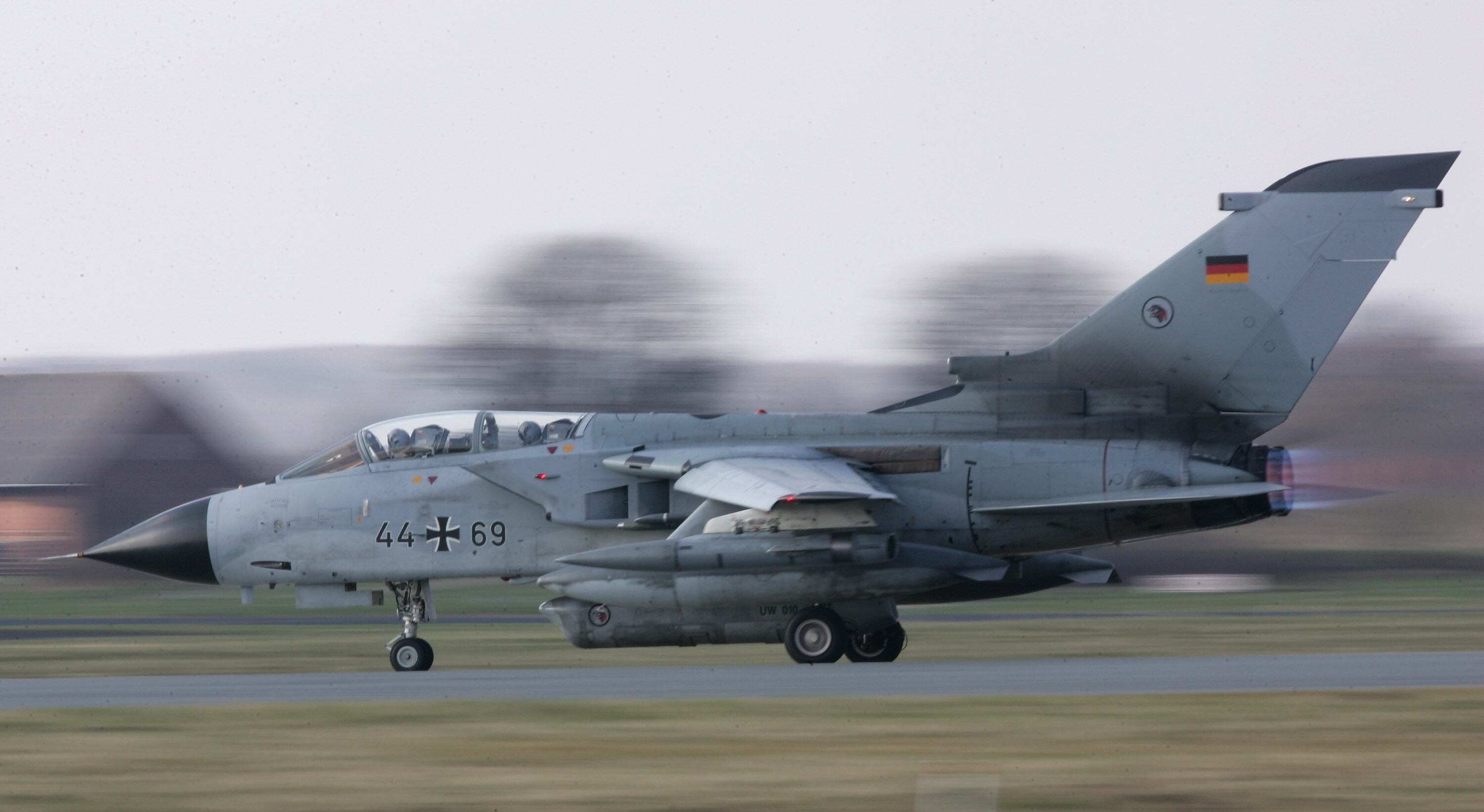COLOGNE, Germany – German defense officials have finally admitted to their vision of buying a few dozen upgraded F-18 fighter jets, citing transatlantic ties as one of the reasons for the pick.
The 45 Boeing-made planes would replace a portion of the country's Tornado aircraft, taking on the sensitive roles of delivering U.S. atomic weapons under NATO's so-called nuclear sharing doctrine and clearing enemy enemy air defenses for follow-on waves of aerial forces.
In addition, the proposal transmitted to lawmakers on Tuesday afternoon entails buying up to 93 Airbus-made Eurofighters, which would carry out the bulk of kinetic missions that warplanes tend to do.
The defense ministry portrayed the decision as a compromise. On the one hand, officials argued, the goal is to prop up a European defense industry busy laying the groundwork for the French-German Future Combat Air System. On the other hand, the F-18s in the Super Hornet and Growler variants would help avert a gap in crucial capability contributions that Germany owes to NATO, they wrote.
“The decision cements the transatlantic partnership, and it underpins our credibility within NATO,” the missive to lawmakers states.
RELATED

Still, the decision remains controversial. Domestic industry advocates have argued the Eurofighter could take on the electronic warfare role, for which the government’s proposal envisions 15 Growlers, by fielding Airbus’s own jamming package. In addition, the argument goes, Germany could piggy-back on a United Kingdom program, another Eurofighter nation, to outfit the planes with the requisite kit.
As for the nuclear-sharing mission, the F-18 decision signals that German defense leaders want to play it safe, at least as long as Berlin remains committed to the pact in the first place. While the latest F-18 variant has yet to be certified to carry American B-61 gravity bombs stored here, ordering a 30-strong fleet of turnkey doomsday bombers from the Pentagon promises to be a lot more stress-free than trying to get Eurofighters ready for the job.
The nuclear mission, however symbolic, accords Germany a kind of atomic gravitas within NATO that previous governments here have upheld even when public opinion was less supportive.
Defense Minister Annegret Kramp-Karrenbauer on Wednesday was careful to frame the split buy as a mere proposal. The Tornado fleet will be viable through 2030, which means an acquisition program needs to be in place by 2025, with parliamentary approvals planned for 2022 and 2023, she said.
“We have not made a source selection,” she told reporters after emerging from a closed meeting of the Bundestag’s defense committee.
Sebastian Sprenger is associate editor for Europe at Defense News, reporting on the state of the defense market in the region, and on U.S.-Europe cooperation and multi-national investments in defense and global security. Previously he served as managing editor for Defense News. He is based in Cologne, Germany.








